Hey there, job seekers and salary enthusiasts! Are you curious about how government employees in Pakistan are compensated? Today, we are peeling back the layers of the Basic Pay Scale (BPS)—a cornerstone of the Pakistan government’s salary framework that impacts millions! It has been decades since BPS was introduced in Pakistan to bring fairness. Beginning with BPS-1, which is for lower-level employees like peons, and ending with BPS-22, which is for the highest echelons, like judges, it has a total of 22 grades. Whether you are a recent graduate looking for a steady job or an experienced individual preparing for your next step, it is important to understand this system, and now is the best time to dive in and unlock your potential income, as the most recent BPS salary scale in Pakistan is scheduled to be updated this year.
Think of joining the government, and your pay will increase gradually because of the BPS salary system, and this system ensures that whether you are a low-level clerk or a high-level officer, your pay grade will be different accordingly. The BPS pay scale Pakistan updates, which takes inflation and changes in the economy into account, are already creating a lot of buzz. This guide will help you determine whether you’re looking at the BPS pay scale for teachers in Pakistan or hoping to achieve a BPS-17 salary scale in Pakistan.
The BPS pay scale in Pakistan is a ladder of opportunity based on your experience and qualifications, not just a collection of figures. From BPS-1 to BPS-22, each grade has a starting salary minimum, yearly raises (usually 5–10% depending on budget announcements), and a maximum salary you can eventually reach. For instance, a BPS-16 might start at Rs. 40,000, climbing to Rs. 100,000 with dedication, while higher grades like BPS-20 offer Rs. 400,000–500,000. This understanding of the BPS pay scale in Pakistan helps you compare roles across departments, from education to administration. With the BPS vs. NPS Pakistan salary comparison gaining traction, many are curious how it stacks against private sector flexibility. Stay with me as we explore each grade in detail!
- Historical Background: BPS was put into place to standardise pay across Pakistan’s government sectors and adjust to shifting market needs.
- Recent developments: It is expected that salary changes will take inflation and cost-of-living increases into consideration.
- Availability: Promotes regional equality of opportunity and is available to anybody with the required qualifications.
- Planning a Career: Knowing your BPS grade helps you set long-term financial and professional goals.
- Openness: Guarantees equitable compensation comparisons among various government positions.
BPS-1: The Entry-Level Foundation
BPS-1 serves as the starting point for many government employees, typically for roles like peons, cleaners, or junior attendants. This grade is designed for individuals who have less formal education, who mostly require just a Matriculation certificate or equivalent. Starting pay is between Rs. 20,000 and Rs. 25,000, with little annual raises that add up over time. Due to its basis for professional advancement and employment security, it provides an accessible entry point into public service. Those on this scale usually work in supportive positions and acquire experience that advances them in their careers.
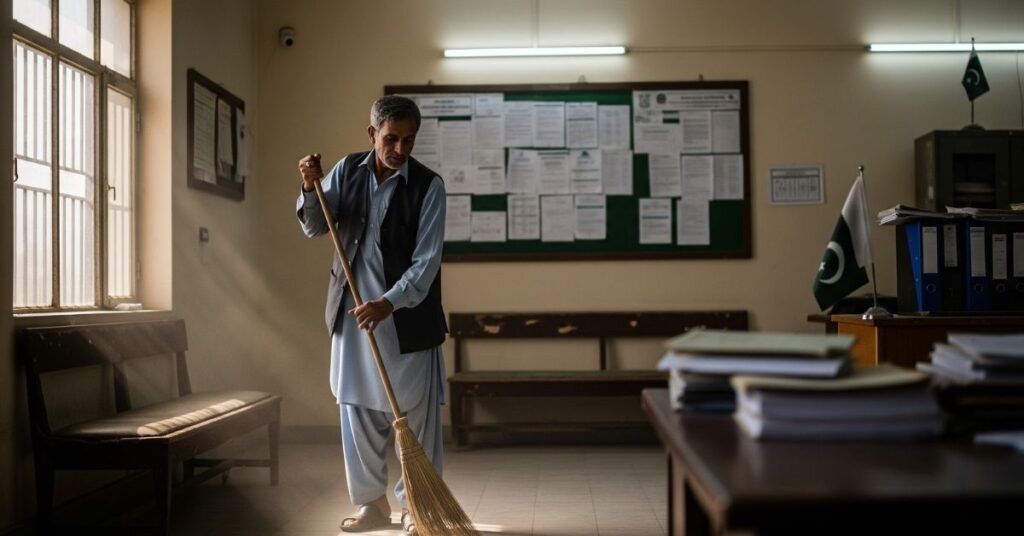
- Role Examples: Peons, cleaners, junior attendants.
- Qualifications: Matriculation or equivalent.
- Beginning Pay: Rs. 20,000–25,000.
- Increments: Gradual annual increases over 5-10 years.
- The Way to Growth: Progression to BPS-2 with experience.
- Benefits: Basic allowances, job security.
BPS-2: Stepping Up the Ladder
A little step up is BPS-2, which covers positions like gatekeepers, drivers, and junior assistants. This grade is higher than entry-level and requires an Intermediate qualification or its equivalent in addition to some prior experience. Usually starting at Rs. 25,000 to Rs. 30,000, salaries increase steadily over time through increments. It’s a common scale for support staff, offering a stable platform for those looking to build a long-term career in the basic pay scale in the Pakistan government jobs. Here, workers frequently assume greater responsibility, paving the way for internal advancement.

- Role Examples: Junior assistants, drivers, gatekeepers.
- Qualifications: Intermediate or equivalent.
- Beginning Pay: Rs. 25,000–30,000.
- Increments: Steady increases over 5-10 years.
- The Way to Growth: Potential move to BPS-3 or higher.
- Benefits: Enhanced allowances, continued job security.
BPS-3: Building Skills
BPS-3 is tailored for roles like head mali, storekeepers, or junior technicians, requiring a Matric with a diploma or some technical training. Starting salaries range from Rs. 30,000 to Rs. 35,000, with raises based on experience and skill growth. Employees are encouraged to develop specialised skills that might lead to higher BPS grades and a compensation structure in Pakistan by using this grade as a stepping stone. It’s ideal for those with hands-on abilities, offering a balance of stability and growth potential within the BPS system, which works in Pakistan jobs.
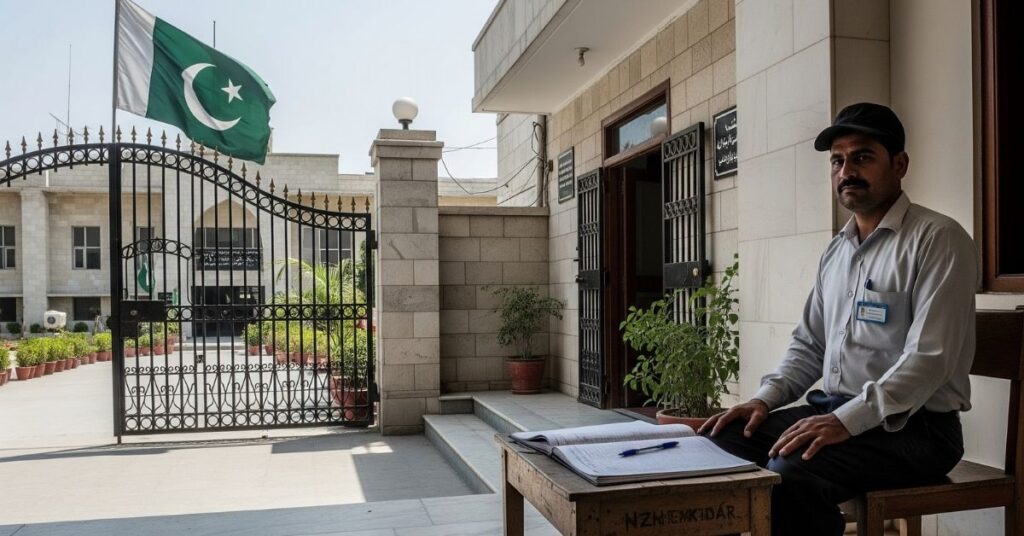
- Role Examples: Head mali, storekeepers, junior technicians.
- Qualifications: Matric with diploma or technical training.
- Beginning Pay: Rs. 30,000–35,000.
- Increments: Reflects skill growth over 5-10 years.
- The Way to Growth: Advancement to BPS-4 with experience.
- Benefits: Technical training support, allowances.
BPS-4: Mid-Tier Support
BPS-4 encompasses positions like clerks, lower division clerks, or technicians, demanding an Intermediate education and some experience. Pay varies between Rs. 35,000 and Rs. 40,000, and raises offer a stable path for advancement. As a transitional job between entry-level and supervisory roles, this mid-tier support post is an essential component of the BPS compensation structure that Pakistani government workers depend on. Here, staff members frequently manage technical or administrative duties, accumulating useful experience for potential advancements.
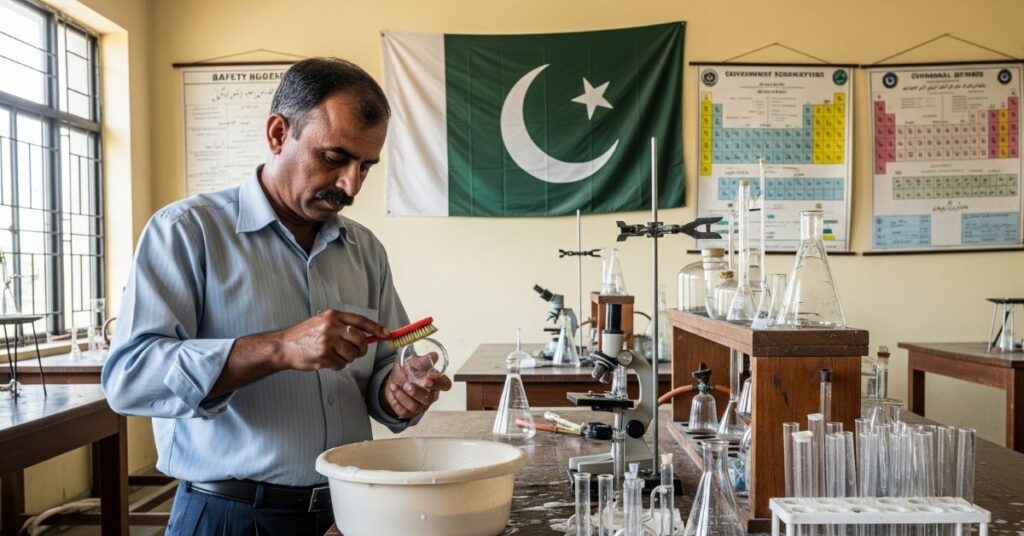
- Role Examples: Clerks, lower division clerks, technicians.
- Qualifications: Intermediate with experience.
- Beginning Pay: Rs. 35,000–40,000.
- Increments: Regular increases over 5-10 years.
- The Way to Growth: Potential to reach BPS-5.
- Benefits: Administrative support, enhanced allowances.
BPS-5: Specialized Roles
BPS-5 targets specialized positions such as junior auditors, draftsmen, or assistant librarians, requiring a Bachelor’s degree or technical diploma. Pay ranges from Rs. 40,000 to Rs. 45,000, with increases commensurate with experience. According to Pakistan’s BPS wage structure, this grade represents a move into specialised responsibilities and is one level above entry-level. It’s a great fit for those with niche skills, offering a pathway to supervisory roles with continued development.
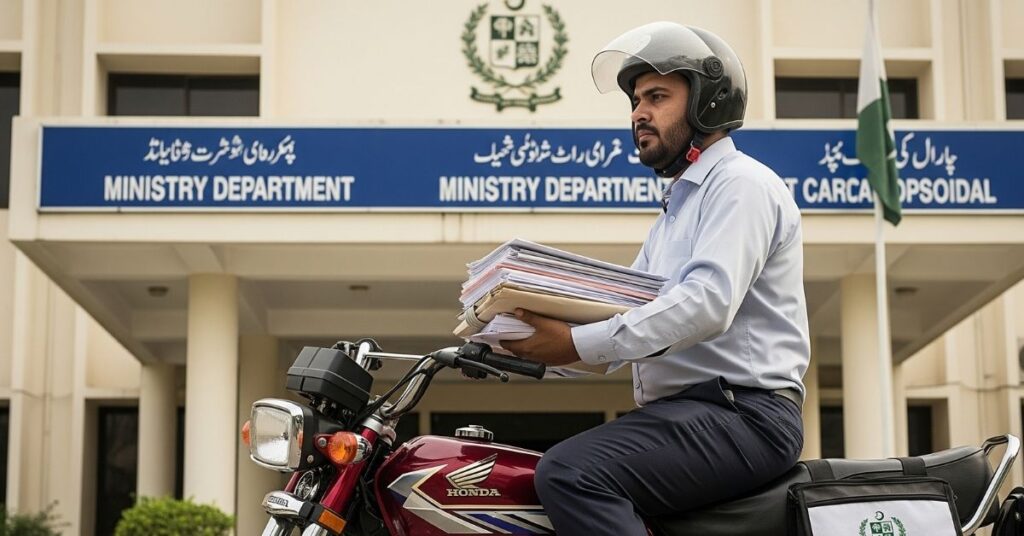
- Role Examples: Junior auditors, draftsmen, assistant librarians.
- Qualifications: Bachelor’s or technical diploma.
- Beginning Pay: Rs. 40,000–45,000.
- Increments: Based on expertise growth.
- The Way to Growth: Move to BPS-6 with experience.
- Benefits: Specialized training, allowances.
Also Read: How to Prepare for a Bank Job in Pakistan: A Complete Guide
BPS-6: Supervisory Beginnings
BPS-6 includes supervisors, assistant accountants, or junior officers, with salaries around Rs. 45,000–50,000. According to Pakistan’s BPS pay scale, supervisory responsibilities begin with a bachelor’s degree and some experience. This grade provides a platform for future professional growth and is perfect for individuals moving from support to leadership roles.

- Role Examples: Supervisors, assistant accountants, junior officers.
- Qualifications: Bachelor’s with experience.
- Beginning Pay: Rs. 45,000–50,000.
- Increments: Steady over 5-10 years.
- The Way to Growth: Progression to BPS-7.
- Benefits: Initial leadership perks, allowances.
BPS-7: Mid-Level Management
BPS-7 features senior clerks, technicians, or assistant supervisors, earning Rs. 50,000–60,000. It demands a Bachelor’s and 2-3 years of experience, serving as a mid-level management entry in the understanding BPS pay scale in Pakistan. Employees here take on greater responsibility, paving the way for higher grades.
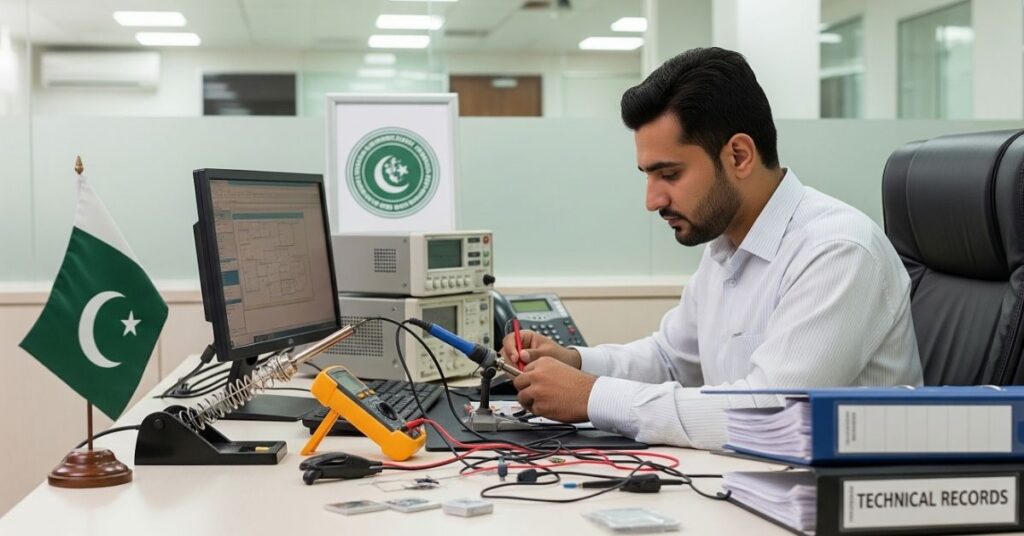
- Role Examples: Senior clerks, technicians, assistant supervisors.
- Qualifications: Bachelor’s with 2-3 years of experience.
- Beginning Pay: Rs. 50,000–60,000.
- Increments: Regular increases.
- The Way to Growth: Advancement to BPS-8.
- Benefits: Enhanced allowances, training opportunities.
BPS-8: Technical Expertise
BPS-8 covers technical officers, assistant engineers, or IT assistants, starting at Rs. 60,000–70,000. It requires a Bachelor’s with specialized training, focusing on technical expertise within the BPS salary guide for Pakistan 2025. This grade is perfect for those with technical skills seeking growth.

- Role Examples: Technical officers, assistant engineers, IT assistants.
- Qualifications: Bachelor’s with specialized training.
- Beginning Pay: Rs. 60,000–70,000.
- Increments: Based on technical proficiency.
- The Way to Growth: Move to BPS-9.
- Benefits: Technical support, allowances
BPS-9: Administrative Roles
BPS-9 includes administrative assistants, inspectors, or junior executives, with salaries around Rs. 70,000–80,000. Requiring a Master’s or equivalent, it’s a step toward administrative leadership in the government job salary structure, the Pakistan BPS. Employees here manage key tasks, preparing for higher roles.

- Role Examples: Administrative assistants, inspectors, junior executives.
- Qualifications: Master’s or equivalent.
- Beginning Pay: Rs. 70,000–80,000.
- Increments: Steady over time.
- Path of Growth: Progression to BPS-10.
- Benefits: Administrative perks, allowances.
BPS-10: Senior Support
BPS-10 features senior support staff like accountants, auditors, or librarians, earning Rs. 80,000–90,000. It needs a Master’s and experience, serving as a senior support tier in the BPS salary and benefits in Pakistan. This grade offers a strong foundation for leadership roles.

- Role Examples: Accountants, auditors, librarians.
- Qualifications: Master’s with experience.
- Beginning Pay: Rs. 80,000–90,000.
- Increments: Based on performance.
- Path of Growth: Move to BPS-11.
- Benefits: Enhanced benefits, training.
BPS-11: Specialized Officers
BPS-11 covers officers like assistant directors, research officers, or education officers, starting at Rs. 90,000–100,000. It requires a Master’s and experience, marking a shift to specialized officer roles in BPS vs. NPS Pakistan salary comparison. This grade is ideal for career-focused individuals.

- Role Examples: Assistant directors, research officers, and education officers.
- Qualifications: Master’s with experience.
- Beginning Pay: Rs. 90,000–100,000.
- Increments: Regular increases.
- Path of Growth: Advancement to BPS-12.
- Benefits: Officer-level perks, allowances.
Also Read: Top 10 Government Jobs in Pakistan: Prestige, Pay, and Perks Unveiled
BPS-12: Mid-Tier Officers
BPS-12 includes mid-tier officers like deputy directors, assistant professors, or revenue officers, earning Rs. 100,000–120,000. It demands a Master’s and 5-7 years of experience, a key grade in how much the BPS-16 salary progression in Pakistan. Employees here take on significant responsibilities.

- Role Examples: Deputy directors, assistant professors, revenue officers.
- Qualifications: Master’s with 5-7 years of experience.
- Beginning Pay: Rs. 100,000–120,000.
- Increments: Steady over time.
- Path of Growth: Move to BPS-13.
- Benefits: Leadership support, allowances.
BPS-13: Senior Officers
BPS-13 features senior officers like section officers, senior lecturers, or assistant directors, earning Rs. 120,000–140,000. Requiring a Master’s and 7-10 years of experience, it’s a senior role in the BPS-17 salary scale in Pakistan 2025. This grade offers a strong leadership platform.

- Role Examples: Section officers, senior lecturers, assistant directors.
- Qualifications: Master’s with 7-10 years of experience.
- Beginning Pay: Rs. 120,000–140,000.
- Increments: Based on performance.
- Path of Growth: Progression to BPS-14.
- Benefits: Senior-level perks, allowances.
BPS-14: Departmental Heads
BPS-14 includes departmental heads, managers, or senior auditors, starting at Rs. 140,000–160,000. It needs a Master’s and 10+ years of experience, a leadership grade in the basic pay scale vs. the non-basic pay scale in Pakistan. Employees here manage key departments.

- Role Examples: Departmental heads, managers, senior auditors.
- Qualifications: Master’s with 10+ years of experience.
- Beginning Pay: Rs. 140,000–160,000.
- Increments: Steady increases.
- Path of Growth: Move to BPS-15.
- Benefits: Enhanced benefits, leadership support.
BPS-15: Assistant Directors
BPS-15 includes assistant directors, deputy secretaries, or principal lecturers, earning Rs. 160,000–180,000. It requires a Master’s and 12 years of experience, a pivotal role in the latest BPS salary scale in Pakistan. This grade is a stepping stone to higher leadership.

- Role Examples: Assistant directors, deputy secretaries, principal lecturers.
- Qualifications: Master’s with 12 years of experience.
- Beginning Pay: Rs. 160,000–180,000.
- Increments: Regular overtime.
- Path of Growth: Advancement to BPS-16.
- Benefits: Significant allowances, training.
BPS-16: Key Administrative Roles
BPS-16 covers key administrators like deputy secretaries, college principals, or senior engineers, with salaries around Rs. 180,000–200,000. It demands a Master’s and 15 years of experience, a cornerstone in BPS salary increments in the Pakistan government jobs. Employees here hold critical positions.
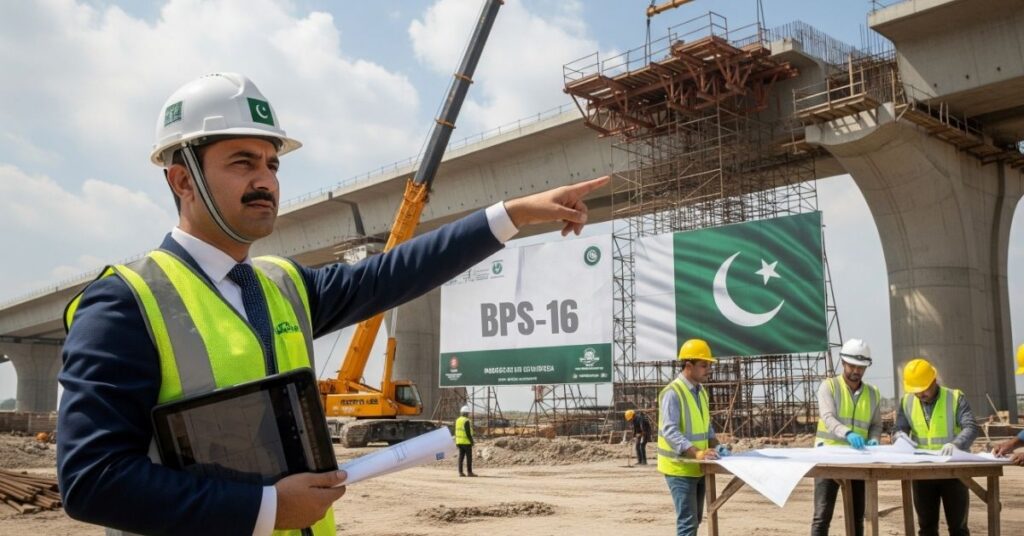
- Role Examples: Deputy secretaries, college principals, senior engineers.
- Qualifications: Master’s with 15 years of experience.
- Beginning Pay: Rs. 180,000–200,000.
- Increments: Based on performance.
- Path of Growth: Move to BPS-17.
- Benefits: High job security, allowances.
BPS-17: Senior Leadership
BPS-17 includes senior leaders like directors, lecturers, or CSS officers, earning Rs. 200,000–250,000. Requiring a Master’s and 17 years of experience, it’s a prestigious grade in the BPS pay scale, explained. This grade marks significant leadership responsibility.

- Role Examples: Directors, lecturers, CSS officers.
- Qualifications: Master’s with 17 years of experience.
- Beginning Pay: Rs. 200,000–250,000.
- Increments: Steady increases.
- Path of Growth: Progression to BPS-18.
- Benefits: Significant allowances, prestige.
Read in Detail: What is the salary of BPS-17 in Pakistan? BPS-17 Salary Structure
BPS-18: High-Level Management
BPS-18 includes high-level managers, senior professors, or joint directors, starting at Rs. 250,000–300,000. It needs a Master’s and 20 years of experience, a top-tier role in the difference between BPS and the market pay scale in Pakistan. Employees here lead major initiatives.

- Role Examples: High-level managers, senior professors, joint directors.
- Qualifications: Master’s with 20 years of experience.
- Beginning Pay: Rs. 250,000–300,000.
- Increments: Based on performance.
- Path of Growth: Move to BPS-19.
- Benefits: Executive perks, allowances.
BPS-19: Executive Roles
BPS-19 features executives like joint secretaries, deans, or chief engineers, earning Rs. 300,000–400,000. It requires a Master’s and 22 years of experience, a key executive grade in the BPS salary structure in Pakistan. This grade offers high-level decision-making power.

- Role Examples: Joint secretaries, deans, and chief engineers.
- Qualifications: Master’s with 22 years of experience.
- Beginning Pay: Rs. 300,000–400,000.
- Increments: Regular increases.
- Path of Growth: Advancement to BPS-20.
- Benefits: Executive benefits, prestige.
BPS-20: Senior Executives
BPS-20 includes senior executives like additional secretaries, vice-chancellors, or directors general, earning Rs. 400,000–500,000. It demands a Master’s and 25 years of experience, a near-top scale in the BPS salary scale in Pakistan. Employees here shape policy.

- Role Examples: Additional secretaries, vice-chancellors, and directors general.
- Qualifications: Master’s with 25 years of experience.
- Beginning Pay: Rs. 400,000–500,000.
- Increments: Based on performance.
- Path of Growth: Move to BPS-21.
- Benefits: Top-tier perks, allowances.
BPS-21: Top Leadership
BPS-21 includes top leaders like secretaries, judges, or university professors, with salaries around Rs. 500,000–600,000. It requires a Master’s and 27 years of experience, a pinnacle role in the BPS salary guide for Pakistan 2025. This grade represents the elite of public service.
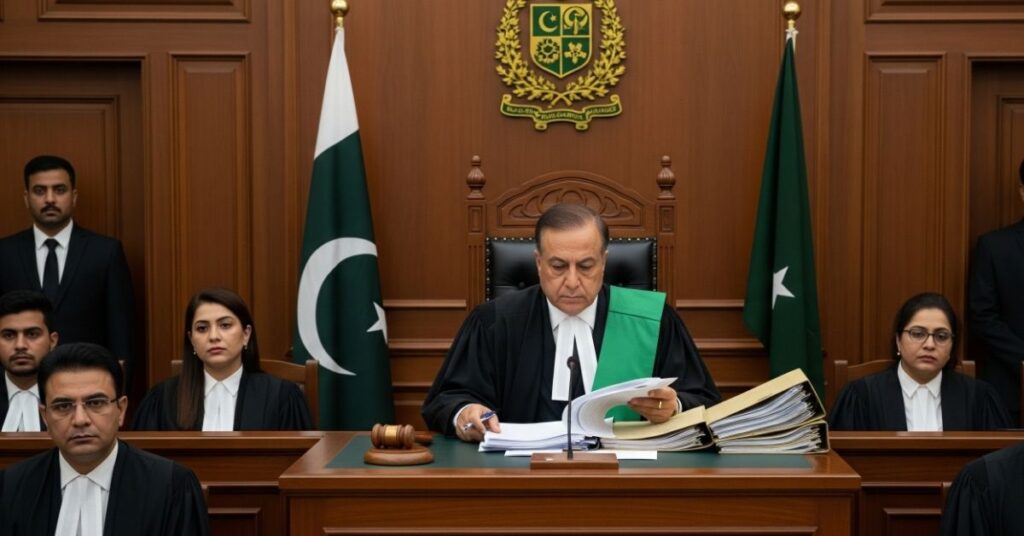
- Role Examples: Secretaries, judges, university professors.
- Qualifications: Master’s with 27 years of experience.
- Beginning Pay: Rs. 500,000–600,000.
- Increments: Steady over time.
- Path of Growth: Progression to BPS-22.
- Benefits: Elite benefits, prestige.
BPS-22: The Apex
BPS-22 is the apex, reserved for roles like cabinet secretaries, chief justices, or federal secretaries, starting at Rs. 600,000–700,000. It needs a Master’s and 30+ years of experience, the highest BPS grades and salary structure Pakistan offers. This grade is the pinnacle of government service, offering unmatched authority.

- Role Examples: Cabinet secretaries, chief justices, federal secretaries.
- Qualifications: Master’s with 30+ years of experience.
- Beginning Pay: Rs. 600,000–700,000.
- Increments: Based on performance.
- Path of Growth: Top leadership role.
- Benefits: Ultimate prestige, extensive perks.
Visit Now: Latest Government Jobs in Pakistan
Final Thoughts
What is BPS: Basic pay scale in the job’s salary system is your roadmap to a secure and predictable career in Pakistan’s government sector. The most recent BPS pay scale in Pakistan, which covers all positions from peons to cabinet secretaries and ranges from BPS-1 to BPS-22, is scheduled to change in 2025. This structure offers benefits including pensions and allowances, stability, and steady advancement. Regardless of whether you’re deciphering Pakistan’s BPS pay scale for teachers or aiming for a BPS-17 compensation scale in 2025. scale in 2025. Compare it with BPS vs. NPS Pakistan salary comparison or market scales to appreciate its edge in job security over private sector volatility.
The government job salary structure in Pakistan, BPS, empowers you with transparency, knowing your starting salary, increments, and maximum potential. Your ideal job is within reach with a clear BPS pay and benefits package; apply, develop, and succeed in 2025 and beyond!
Frequently Asked Questions (FAQs)
-
What is the BPS salary scale in Pakistan?
It’s a 22-grade system setting minimum, increment, and maximum salaries for government jobs.
-
How does the BPS system work in Pakistan jobs?
The pay range for each grade includes yearly raises that are updated on a regular basis, such as in 2025.
-
What is the latest BPS salary scale in Pakistan for 2025?
For the most recent data, which are subject to 5–10% increments, consult the official notices.
-
How much is the BPS-16 salary in Pakistan?
It typically starts at Rs. 180,000, rising to Rs. 200,000 with increments.
Discover more from JobStallPk.Com
Subscribe to get the latest posts sent to your email.
